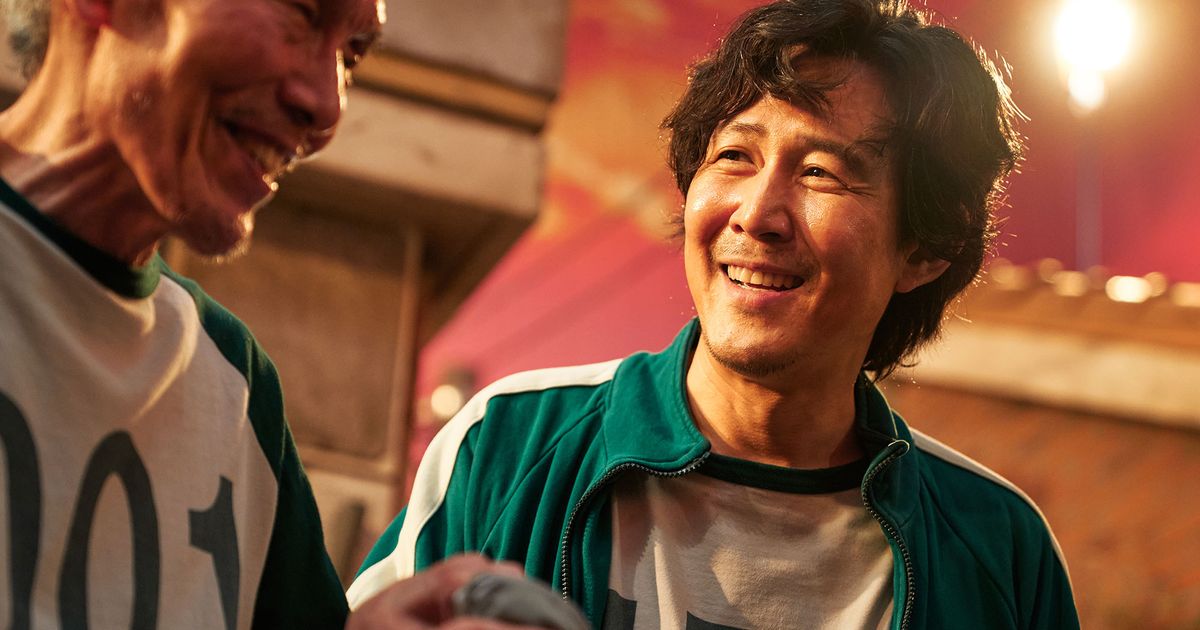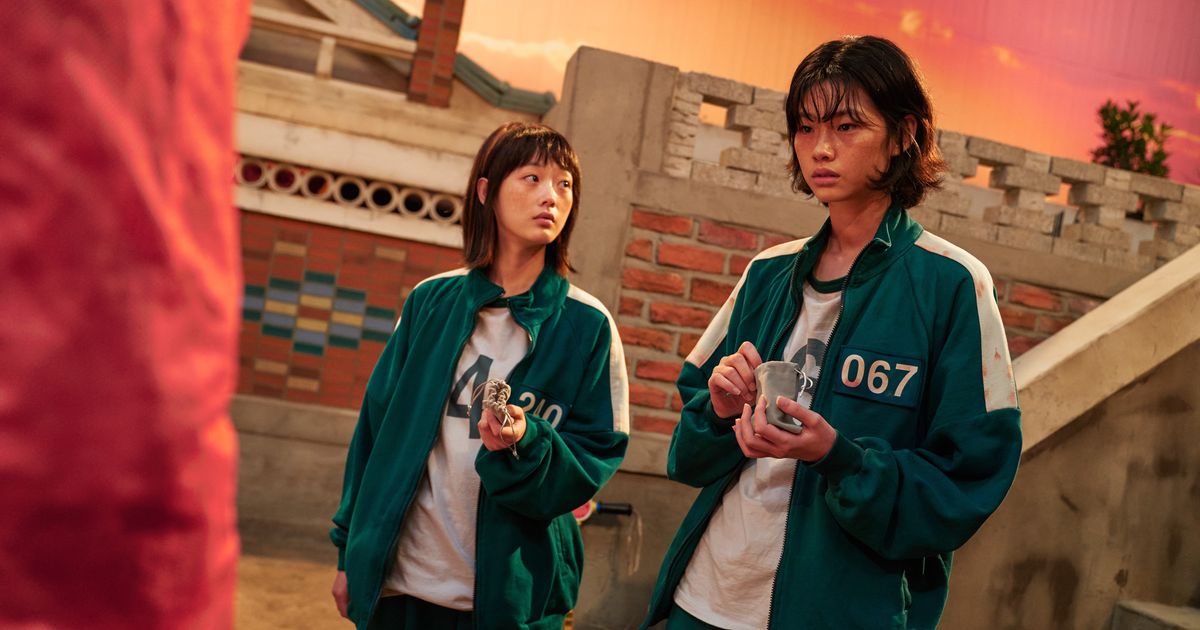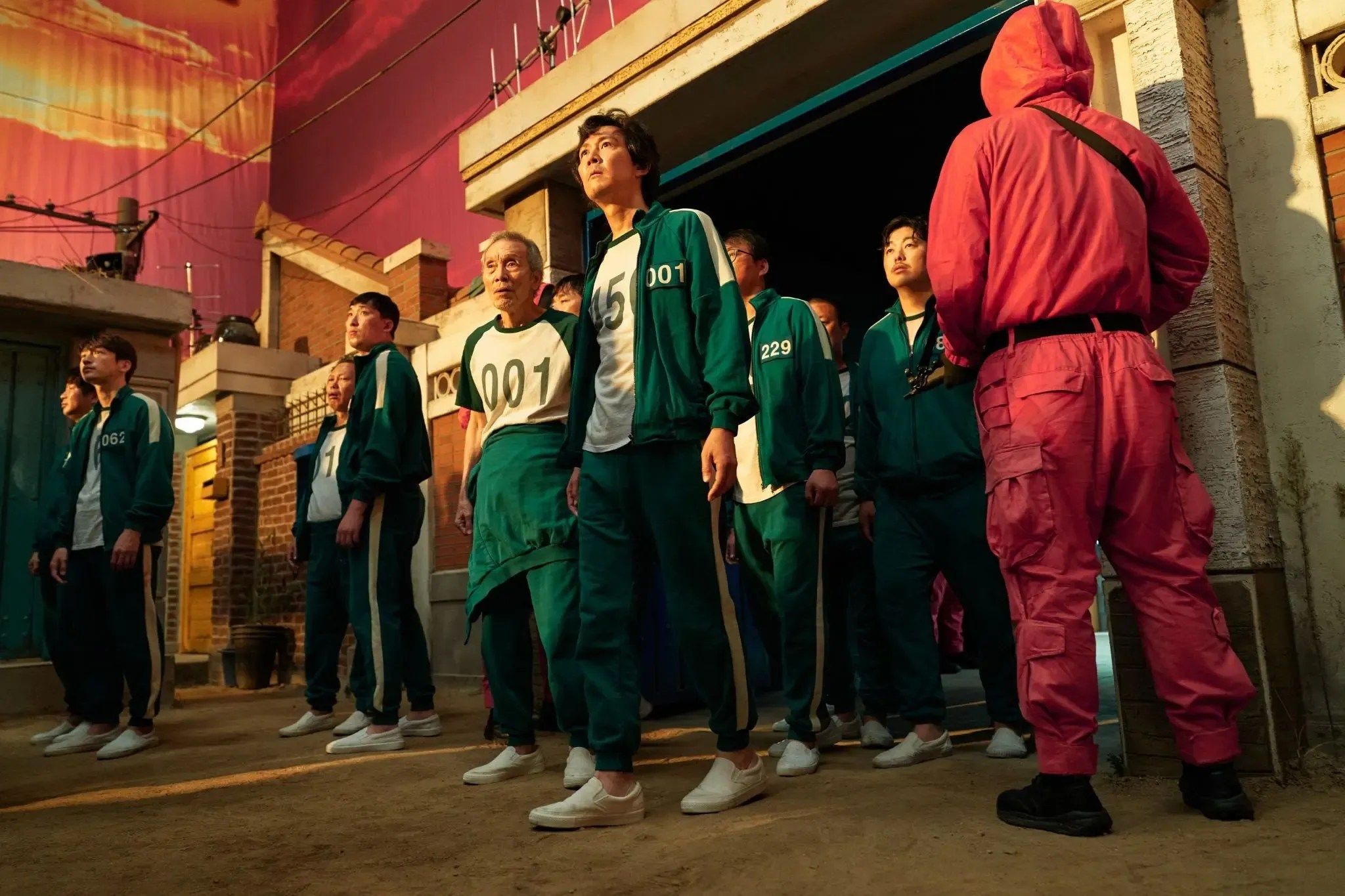Have you ever stumbled upon a word that seems to encapsulate an entire emotional landscape? "Gganbu," a term catapulted into global consciousness by the Netflix sensation Squid Game, is precisely that: a linguistic portal to childhood camaraderie, heartbreaking betrayal, and the bittersweet essence of shared vulnerability.
The sixth episode of Squid Game, titled simply "Gganbu," isn't just a pivotal moment in the series' narrative; it's a masterclass in emotional storytelling, hinged on the nuanced meaning of a single Korean word. As players are forced to pair up and compete in a seemingly innocent game of marbles, the term "gganbu" takes on a life of its own, transforming from a nostalgic echo of childhood friendship into a chilling declaration of impending loss. This seemingly simple word, "gganbu," becomes a loaded weapon, brandished in moments of both genuine connection and calculated manipulation. The episodes exploration of trust, sacrifice, and the crushing weight of impossible choices has resonated deeply with viewers worldwide, making "gganbu" a cultural touchstone far beyond the borders of South Korea.
| Aspect | Details |
|---|---|
| Term | Gganbu () |
| Origin | Korean slang term, primarily used among children. |
| Meaning | A close friend, partner, or ally, with the implication of sharing possessions or resources; "partner in marbles." |
| Context in Squid Game | Refers to a chosen partner for the marble game in Episode 6. The characters believe they are playing alongside their "gganbu," only to discover they must compete against them. |
| Cultural Significance | Evokes nostalgia for childhood games and friendships; highlights themes of trust, betrayal, and sacrifice. |
| Variations | Depending on the region, variations like "ggambo" or other similar-sounding terms may be used. |
| Global Impact | The term gained international recognition after the release of Squid Game, sparking discussions about its meaning and cultural context. |
| References | Korea.net - Understanding "Gganbu" from Squid Game |
The power of "gganbu" lies in its deceptively simple definition. Its a childhood term, a slang word passed down through generations of Korean children, signifying a bond of close partnership, an alliance forged in the innocent arena of playground games. A "gganbu" is someone you share with, someone you trust, someone with whom the concept of "mine" blurs into a comfortable "ours." They are the confidantes with whom you trade cards, the teammates who amplify your chances of victory, the friends who make the world a little less daunting. In essence, a gganbu is a comrade. It carries the inherent understanding that players participate seriously and fight together for victory.
- 2025 Indian Streaming Scene Mustwatch Hindi Web Series
- Justina Valentine Bio Zodiac Wild N Out More Facts
However, Squid Game cleverly subverts this idyllic understanding. The "gganbu" episode throws the contestants into a brutal scenario where this childhood bond is weaponized. Players, lured into a false sense of security by the promise of partnership, are then forced to betray, outwit, or sacrifice their "gganbu" in order to survive. The episodes genius is in showcasing the stark contrast between the innocent connotation of the word and the deadly reality of the game. This juxtaposition creates a profound sense of unease, forcing viewers to confront the uncomfortable truth about human nature under duress.
The dialogue surrounding the word "gganbu" within the series further underscores its tragic irony. The characters, grappling with their own mortality, desperately cling to the remnants of their humanity. The older man, Player 001, Oh Il-nam, affectionately declares himself Gi-hun's "gganbu," offering a fleeting glimpse of genuine connection amidst the surrounding despair. He uses the term to foster trust, to create a sense of shared destiny, only to later shatter that illusion with a shocking revelation. His words become a cruel mockery of the word's original meaning, highlighting the corrosive influence of the game on the players' moral compasses.
The series doesnt shy away from exploring the different facets of human behavior in the face of desperation. Gi-hun, the protagonist, embodies moral conflict as he struggles with the ethical implications of the game. Sang-woo, on the other hand, represents the ruthless pursuit of self-preservation, willing to sacrifice anyone even his "gganbu" to secure his own survival. Sae-byeok's character provides another layer of complexity, offering a poignant backstory that sheds light on her motivations and vulnerabilities. These contrasting narratives, interwoven with the recurring motif of "gganbu," create a rich tapestry of human experience, forcing viewers to question their own values and priorities.
- Hot Steamy The Best Adult Web Series You Need To Watch
- Toni Kroos The Legend Retirement Footballing Achievements
The resonance of the "gganbu" concept extends far beyond the fictional world of Squid Game. Fans worldwide have connected deeply with the themes of friendship, betrayal, and sacrifice, leading to countless analysis videos and online discussions dissecting the episode's emotional impact. The show's exploration of these universal themes has sparked a global conversation about the human condition, prompting viewers to reflect on their own relationships and the choices they would make in similar circumstances. In fact, analysis videos dedicated to explaining and exploring the concept of "gganbu" have garnered over 50 million views on YouTube, highlighting the word's profound impact on the viewing audience. It is more than just a slang term; it is a reflection of human connection in the face of adversity.
Interestingly, the word "gganbu" is not universally known even within South Korea. Some Koreans in their 40s and 50s may not be familiar with the term, as it is primarily a word used and spread among children. This generational gap adds another layer of intrigue to the word's significance, suggesting a fading connection to childhood innocence and a growing disconnect between generations. Depending on the specific region of Korea, variations of the word exist, such as "ggambo" or other similar-sounding terms. What remains consistent across these variations is the underlying meaning of close partnership and shared camaraderie. The poor man in the series is clearly frightened but thus far has done a pretty good job hiding it.
Beyond its linguistic and cultural significance, "gganbu" also functions as a potent symbol within the show's broader commentary on social inequality and the cutthroat nature of capitalism. The players, driven to desperation by crippling debt and societal marginalization, are forced to compete against each other for a chance at financial freedom. The "gganbu" episode highlights the insidious ways in which this system pits individuals against each other, eroding trust and fostering a climate of ruthless competition. The question "Is there a theme more unifying in global pop culture than 'capitalism is bad'?" becomes particularly relevant in the context of Squid Game, as the series masterfully exposes the dark underbelly of economic disparity and the devastating consequences of unchecked greed.
The shows production design plays a crucial role in amplifying the emotional impact of the "gganbu" episode. The vibrant, almost cartoonish setting of the marble game creates a jarring contrast with the underlying brutality of the situation. This visual dissonance serves to heighten the sense of unease, reminding viewers that even in the midst of apparent innocence, danger lurks beneath the surface. The nostalgic memories of playing marbles in the street that are shared between characters further accentuate the tragic loss of innocence and the corruption of childhood values. The episode title, "Gganbu" (childhood BFFs), therefore, acts as a poignant reminder of what the players have lost and what they are willing to sacrifice in their desperate pursuit of survival.
The episodes narrative unfolds with a deliberate pacing, allowing viewers to fully immerse themselves in the emotional turmoil of the characters. As players pair off for the fourth game, the tension builds palpably, fueled by the uncertainty of what lies ahead. The conversations between the "gganbu" partners are fraught with unspoken anxieties, as they attempt to navigate the treacherous terrain of trust and deception. The next game is ready to start. The ambiguity surrounding the rules of the game further intensifies the sense of dread, leaving both the players and the audience on edge.
Ultimately, the "gganbu" episode of Squid Game is a powerful exploration of the human condition, forcing viewers to confront uncomfortable truths about themselves and the world around them. It's a story of friendship and betrayal, of sacrifice and survival, told through the lens of a seemingly simple Korean word. The show's ability to elevate a childhood slang term to a symbol of profound emotional resonance is a testament to its storytelling prowess and its enduring appeal. It prompts viewers to reflect on the true meaning of partnership and the lengths to which people will go when their lives are on the line. So, you can use 'gganbu' to refer to your best. It is a word spread through children; therefore, depending on the region, it is called ggambo or other words, not gganbu, but what has in common is that the pronunciation is similar. Gi-hun lidia con un dilema moral, sang-woo escoge su propia supervivencia, y sae-byeok cuenta su historia. El seor le dice al 456 que l ser su gganbu, algo as como su mejor amigo con el que comparte todo.
Myself and a close friend were out having some drinks last night and we began to discuss Squid Game, and especially how affected we both were by the powerful sixth episode. We imagined ourselves in the gganbu game, with ten marbles each and twenty minutes. We discussed what we thought we would do. The players square off in a heartbreaking game of marbles. A recap of Squid Game episode 6, gganbu, in which the players square off in a heartbreaking game of marbles. Acceptable ways to phrase gganbu. Hello everyone, this is the discussion thread for episode 6 of Squid Game. Please do not post any spoilers for future episodes. The episode title gganbu (childhood BFFs) comes from a conversation between these two men, sharing nostalgic memories of playing marbles in the street.
Then, they are told that they will eliminate each other: Luego, les indican que se eliminarn entre ellos. Players pair off for the fourth game. Players pair off for the fourth game. Los jugadores hacen parejas para el cuarto juego. \uae50\ubd80 ) es el sexto episodio de Squid Game. Gganbu() refers to a member of a team when playing traditional Korean games. It has the connotation of a comrade. Because children participate in the game seriously and fight together for victory. But Squid Game vaulted awareness of this.
A discussion thread on the origin and meaning of the Korean word gganbu used in the Netflix series Squid Game. Users share their opinions and insights on the possible sources and variations of the slang term. We will make our food using fresh ingredients. We will make healthy food with the health of our customers in mind. We will use time to make the right food. Spoilers ahead for gganbu and the rest of Squid Game. gganbu () () () () () () (, ) . nh ngha gganbu bn c bit cch ci thin k nng ngn ng ca mnh khng tt c nhng g bn cn lm l nh ngi bn ng sa bi vit ca mnh!
- Your Guide To Flyertalk Miles Points And Travel Secrets Unveiled
- Spicy Indian Web Series Adult Entertainment Whats Hot Now


